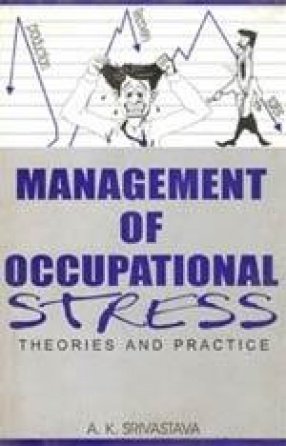
This book is primarily meant for stress management practitioners and stress researchers. However, it would prove equally useful also to individual employees and general readers. Though the main emphasis of the book is on management of occupational stress and consequent strains, in the interest of general readers, it provides basic information on the concept, sources and consequences of occupational stress in separate sections.Though various techniques of stress management are
interrelated in the book, various techniques or interventions have been separately discussed in the order of the stage of their operation. In this order the book covers from strategies to prevent role stress at individual (cognitive, behavioural and physiological) and organization levels to therapeutic treatment of stress disorders. The interventions for eliminating or mitigating, coping with, and moderating the stress and strains have been included between two extremes of stress management practices. Along with the procedural elaboration of various intervention strategies, the related theoretical concepts and relevant researches have also been referred. Finally, certain issues relating to stress management practice and some guidelines for making effective application of various techniques have also been discussed.
Dr. A.K. Srivastava, presently a Professor of Psychology at Banaras Hindu University, Varanasi, started his career as a lecturer in the Department of Business
Administration, B.I.T.S., Pilani. He obtained Ph.D. Degree from the Banaras Hindu University in 1974, where he is serving since 1971. He has published more than 50 research papers in National and International journals related to occupational stress, coping strategies and mental health, and has supervised 15 Ph. D. dissertations. Dr. Srivastava has standardized several psychometric tools which are being widely used in researches in organizational
behaviour. He has completed several research projects on “Stress and Health”, sponsored by the Indian Council of Medical Research, Indian Council of Social Sciences Research. and University Grants Commission. Presently he is working on a U.G.C. sponsored major research project on “Management of Occupational Stress and Consequent Strains”.

CONTENTS
Preface
1. Conceptual Perspective
2. Sources of Occupatioanl Stress
3. Consequences of Occupational Stress
4. Management of Occupational Stress
5. Eliminating or Mitigating Organizational Stressors
6. Coping with Occupational Stress
7. Moderating Occupational Stress and Strains
8. Therapeutic Treatment of Stress Disorders
9. Some Related Issues and Suggestions
Appendix-I Occupational Stress Index
Appendix-II Functional Job Stress
Scale (Short Form)
Appendix – III Stress Symptoms
Inventory
Appendix – IV Job Anexiety Scale
Appendix – V Stress-Resistaut Cognitive
Behavioural Patterns Scale
Appendix – VI Coping Strategies Scale
Bibliography
Index

